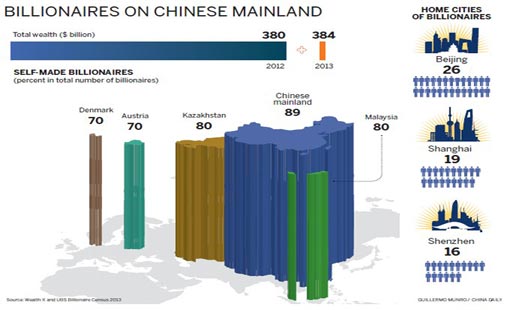Cyber cafe waiter turned entrepreneur
Updated: 2013-12-26 08:15iDreamsky founder sees strong future for publishing work of other gamers
|
 Mobile game developers and publishers promote games at an international Internet exhibition in Nanting, Jiangsu province. The number of mobile gamers in China is expected to jump to 288 million in 2013 from 192 million in 2012. Provided to China Daily
|
Jeff Lyndon was a hard-core video game player when he was a child. His mother used to lecture him whenever she saw him playing, asking: "Can you make a living by playing games?"
Although Lyndon regarded his childhood behavior as a "bad model", the 31-year-old Hong Kong-born man has indeed made a living in China's mobile gaming industry. In fact he does much better than merely making a living.
Lyndon is the co-founder and executive vice-president of Shenzhen-based iDreamsky, a Chinese game publisher that has established its leading position through publishing some of the West's best-known mobile games, such as Halfbrick's Fruit Ninja and Imangi's Temple Run series, in China.
Riding the wave of China's rapidly growing smartphone market, iDreamsky has nurtured Temple Run to the point that it has nearly 200 million gamers in China with about 7 million daily users. Fruit Ninja has accumulated even more gamers than Temple Run because it was brought to China earlier than the latter.
"They are practically national games in China," Lyndon said proudly. Statistics from China News Games Research Co showed that there were about 223 million mobile gamers in China as of the end of September.
Getting China's smartphone owners to play mobile games is easy, but to get them to pay for those games is tough. It is also extremely difficult for foreign game developers to fight against game cloners and navigate the labyrinth of different app stores in China. That is why some developers look for a publisher to help them run their games.
Unlike the majority of Chinese mobile game companies, which both develop and publish games, iDreamsky doesn't have a dual role. "We only publishes games and we don't make our own titles," Lyndon said, adding the strategy is one of the main reasons that helps the company succeed.
Having a dual model can sometimes lead to conflicts of interest if a studio promotes its own games over a third-party title or even borrows ideas from a third-party studio.
"We are like those parents who do not have their own children. We want them badly and people can trust us to treat them like our own," said Lyndon, who started his career as a waiter in a cyber cafe in Hong Kong after graduating from high school and has since held many top positions in high-profile game companies before setting up his own in 2004.
Founded in 2009, IDreamsky, is the third company Lyndon has set up. According to him, both his first company - a virtual currency farming company - and the second one - a game consulting firm - were successful, thanks to all the games he played for years and especially the one-and-a-half years of work experience in the cyber cafe, which gave him a deep understanding about regular gamers' habits and behavior.
Starting as an outsourcing developer for smartphone applications and games, iDreamsky, the company consisting of six staff decided to get involved in the mobile game industry in 2011. "The market was not viable in China at that time, but we all believed that mobile gaming was the future, as the trend in the United States and other developed countries has shown," Lyndon said.
They decided the best way to help the startup company to transform from nothing into something in a short time was to get the contract to publish one of the top Western mobile games in China. So iDreamsky set its eyes on the top four games at that time: Angry Birds, Plants vs. Zombies, Talking Tom Cat and Fruit Ninja.







